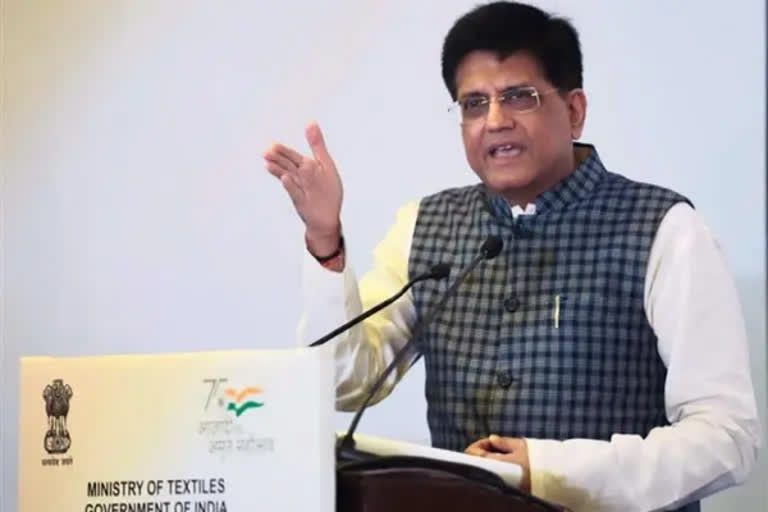New Delhi: Indian and Australian trade ministers have set a tight deadline for finalizing an interim trade agreement which they hope to finalize in a month, leading to a comprehensive economic cooperation agreement (CECA) between the two countries in a year.
Addressing the media after a three-day-long hectic discussion between the two sides, commerce and industry minister Piyush Goyal said a comprehensive trade agreement between the two countries will provide a quantum jump to the bilateral trade from the present $20 billion a year.
The two nations are expected to sign the Interim Agreement in March 2022. The areas covered under the interim agreement should include goods, services, rules of origin, sanitary and phytosanitary measures, customs procedures, and Legal and Institutional issues.
Goyal, however, refused to divulge the details of the tariff lines to be included in the interim trade agreement as the issue of inclusion of Australian dairy products and wine remains a sensitive issue in the country.
“The interim trade agreement and the comprehensive economic cooperation agreement will cover a very vast array of subjects,” Goyal said in response to a question.
Australian trade and tourism minister Dan Tehan said the Australian side was sensitive about India’s concerns regarding dairy products and beef.
Both sides agreed on the need for a balanced trade agreement that encourages expanded trade and investment to the benefit of both of the economies and reflects a commitment to the rules-based international trading system.
India and Australia also agreed to expeditiously resolve the tax-related issues faced by Indian software firms in Australia.
READ: Australia's trade minister to visit India to further FTA negotiations
Quad to boost trade relations
Goyal’s meeting with his Australian counterpart took place at a time when India’s foreign minister S Jaishankar was in Australia to participate in the Quad foreign ministers’ meeting.
A bloc of four countries, India, Australia, the USA and Japan have formed an alliance, usually referred to as the Quad, to protect the freedom of navigation and rules-based international order in the Indo-Pacific region.
Goyal said that Quad has brought the four countries, the USA, India, Australia and Japan closer and this had also enabled India and Australia to come closer to each other in economic relations as well.
Dan Tehan said the Quad is formed at a time when the world is passing through a phase of geo-political uncertainties as some countries tried to violate the rules-based international order that evolved after the second world war.
In response to a question about Australia’s trade relations with China, Tehan said rules were important for Australia and his country has some trade disputes with China over the issue of wine and barley.
“We are taking them (China) to the World Trade Organization,” confirmed the Australian leader.
Mutual recognition of degrees
Dan Tehan said both the countries are looking at mutual recognition of qualifications so that students can now study in both nations. Tehan, who also holds the tourism portfolio, also announced that from February 21, Australia would open its borders for all international travellers as the country is coming out of the Covid-19 global pandemic.



